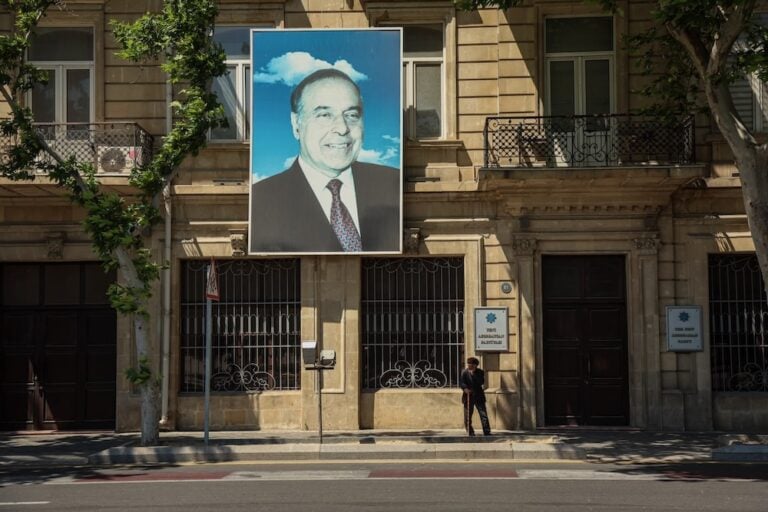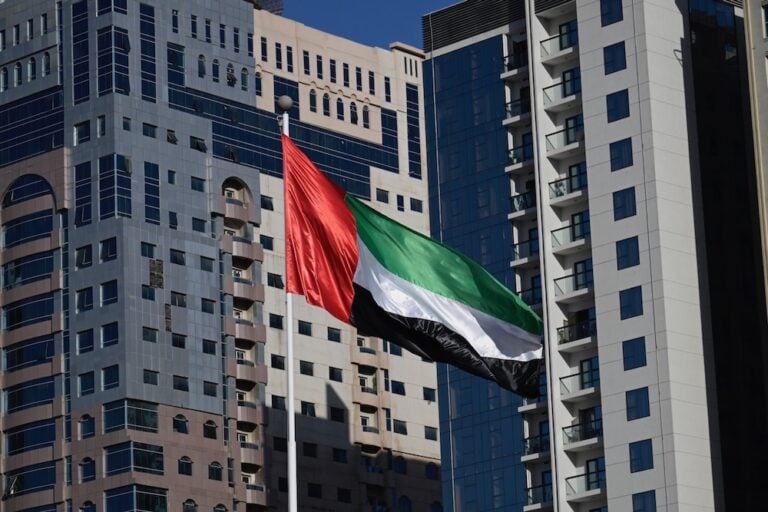Ahmed Ghaith Al Suwaidi and Ahmed Yousef Buatabh Zaabi were arrested on 26 March, without a warrant, and are being held in detention.
(RSF/IFEX) – 30 March 2012 – Reporters Without Borders condemns the arrests and trials of netizens in the United Arab Emirates. The authorities continue to monitor online social networks closely, as Col. Abdul Rahim bin Shafi, the head of the interior ministry’s organized crime department in Dubai, said they were doing last year. Events in recent weeks bear this out.
“The Emirati authorities are cracking down harder on bloggers and netizens who criticize the regime,” Reporters Without Borders said. “March has seen a wave of arrests, attacks and acts of intimidation. We urge the government to abandon these methods. The authorities must stop arresting netizens and bloggers for what they post online and must guarantee their safety.”
Saleh Al-Dhufairi, a netizen who is very active on social networks (@SalehAlDhfairi), was finally released on bail on 20 March after being arrested on 9 March and held in Abu Dhabi’s Al Wathba prison. He is charged with using Twitter to “incite sedition” and “abuse religion.”
Dhufairi has been covering sensitive subjects such as the “UAE 7,” a group of pro-democracy activists whose citizenship was withdrawn after calling on the government to carry out political reforms and organize elections, and criticizing the state security department’s meddling in political matters. He is to be tried by a state security court but no trial date has so far been set.
The blogger Juma Al-Felasi (@jalfelasi) was attacked by an unidentified group as he was driving in Dubai on 6 March. His assailants pulled him out of his car and beat him, accusing him of sullying the image of the UAE’s rulers. Felasi is known for criticizing government policies and calling for democratic reforms in his blog posts.
The continued close monitoring of the Internet is evident from the immediate reprisals against anyone posting content that is not to the government’s liking. The police do not hesitate to intimidate opposition bloggers and netizens using social networks.
Mohammed Abdul Razzaq Al-Siddiq, one of the “UAE 7,” was arrested at his home without a warrant in the northeastern emirate of Al Sharjah at 4 a.m. on 24 March following a comment on Twitter accusing the emirate’s ruler, Sultan Al-Qassimi, of discriminating against the UAE’s large expatriate population. He was released later in the day after paying a fine, and will not be prosecuted.
Another “UAE 7” member, activist Ahmed Ghaith Al Suwaidi, was arrested in Abu Dhabi on 26 March along with Judge Ahmed Yousef Buatabh Zaabi, a fellow activist. The police did not have a warrant and the two men are still being held although no charge has been brought against them.
Dubai police chief Dhahi Khalfan used Twitter to warn human rights activist Khalifa Al-Nuaimi (@Alnuaimi_k) that police were coming to arrest him 13 March:
ضاحي خلفان تميم @Dhahi_Khalfan
@Alnuaimi_k انت مطلوب للعدالة… ونحن شفا فون … حضورك الينا افضل.
ضاحي خلفان تميم @Dhahi_Khalfan
@Alnuaimi_k خليفه لا نعرف اننا سنحيلها هذي جريمة يجوز القبض فيها لنا ولكن النيابة الاتحادية هي جهة الترافع فيه.. شرطة دبي في الطريق اليك .
Translation: You are wanted by the judicial authorities… We are transparent… You’d be advised to surrender.
[…] This is a crime for which we have the right to arrest you but it’s before the federal prosecutor that you enter your plea… the Dubai police are on their way to arrest you.
The netizen Mohamed Ismael Akhbar has been detained since 19 February on a charge of insulting an official for criticizing Khlafan, the police chief, on social networks. A stateless person, he had condemned the corruption he had encountered in the course of his attempts to regularize his situation, and the failure of the police to take any action in response to his complaints. He has had not access to a lawyer and has been held in solitary confinement. A court is expected to issue a verdict on 1 April.
Meanwhile, the “UAE 5,” five activists who were arrested last year and given jail sentences for calling for democratic reforms, have not been given back their passports since their release on 28 November and their convictions have not been quashed, which they requested after getting a presidential pardon. The authorities have also taken no action in response to the complaints they filed against the people who waged a smear campaign against them.
Reporters Without Borders lists the UAE as a country “under surveillance” in its 2012 report on “Enemies of the Internet.”


